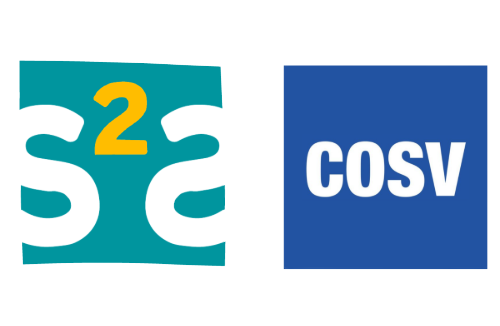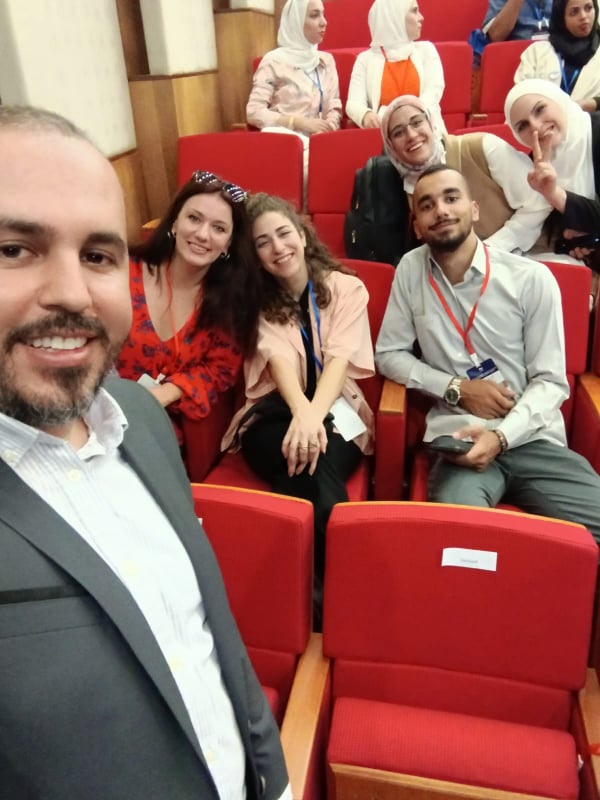In an increasingly interconnected world, the importance of collective action, solidarity, and community welfare cannot be overstated. These concepts underpin the foundations of strong social states, functioning economies, and effective policies that serve the interests of society. As someone with a background in Political Science and Policy Studies, these ideas have shaped my perspective and motivated me to work in the non-governmental development sector. In this article, I will share my journey, and my role at COSV – Cooperazione per lo Sviluppo, and explore the critical concepts of social economy, social entrepreneurship, and their relation to the Sustainable Development Goals (SDGs). I will also reflect on a recent peer exchange experience I took part in.
Motivation for Choosing the Non-Governmental Development Sector
My academic journey in Political Science and Policy Studies instilled in me a deep appreciation for res publica, where the price of bread is not merely an economic matter but a political one. It emphasized the significance of participatory processes and the fundamental provision of social rights. This motivation led me to the non-governmental development sector, where I believe change is not just a possibility but a necessity. NGOs play a pivotal role in complementing government and private sector efforts, advocating for social justice, ensuring accountability, and empowering communities to enhance their well-being. Currently, I serve as a project manager at COSV – Cooperazione per lo Sviluppo, an international NGO based in Milan. My role revolves around managing a project aimed at fostering the inclusion of the Roma community in the Bair neighbourhood of Bitola, North Macedonia. This endeavour aligns perfectly with my passion for reducing inequality and promoting fairness and inclusiveness. It is a privilege to work with COSV, an organization dedicated to driving social change and making a tangible impact in the lives of marginalized communities.
Understanding Social Economy and Social Entrepreneurship in the Context of SDG
In countries where clear definitions of social economy and social entrepreneurship are lacking, these concepts take on even greater significance. Social economy refers to economic activities that prioritize social and environmental well-being over purely profit-driven motives. Social entrepreneurship, on the other hand, involves using entrepreneurial principles to address social or environmental issues. Both concepts are closely related to the SDGs, as they contribute to achieving goals such as poverty reduction, gender equality, quality education, and sustainable communities. The Sustainable Development Goals (SDGs) serve as a global roadmap for addressing pressing challenges, and social economy and social entrepreneurship play a pivotal role in their achievement. For young people in countries facing this ambiguity, embracing social entrepreneurship and the principles of social economy can be a potent means of driving positive change.
Reflection on Peer Exchange Experience
Participating in the final workshop of the “MENA Social Entrepreneurship Peer Exchange Program” in Beirut, Lebanon provided me with invaluable insights into the perspectives and attitudes of young people in the region. The workshop’s primary objective was to conclude the policy paper titled “The Role of Social Entrepreneurship in the Advancement of SDGs in the MENA Region.” The findings from this workshop underscore several crucial points that should be considered by all stakeholders involved in the advancement of the Sustainable Development Goals (SDGs) in the MENA region.
Firstly, it’s essential to recognize that beneficiaries should be seen as partners in the pursuit of SDGs. Their active involvement and input are crucial for meaningful progress.
Moreover, collaboration among social entrepreneurs is instrumental in advancing the SDGs. Working together, sharing resources, and learning from each other’s experiences can lead to more effective solutions.
Improving the relationship between social entrepreneurs and government bodies is a priority. This collaboration can facilitate the implementation of policies and initiatives aimed at achieving the SDGs.
Extending collaboration with municipalities is vital to fostering community engagement and supporting local initiatives that contribute to SDG achievement.
Partnerships with academia can bring valuable research and expertise to the table, enhancing the effectiveness of social entrepreneurship initiatives.
Achieving the SDGs requires the engagement of multiple stakeholders, including civil society, businesses, and community organizations. A coordinated effort is essential.
The focus should be on creating a human-centred welfare society that prioritizes the well-being and needs of individuals and communities. Tailoring interventions to the specific needs of communities is essential for sustainable development. As someone hailing from the Balkans, particularly North Macedonia, where a legal framework for social entrepreneurship is lacking, I can attest that despite differing challenges and contexts, there is a common thread of determination and a shared commitment to social change evident in both the MENA and Balkans regions. In addition, this exchange experience also highlighted the importance of cross-cultural dialogue and collaboration, as we learned from each other’s successes and challenges. Emphasizing the promotion of a culture of inclusion and empowerment of minorities is crucial for achieving the SDGs and fostering positive societal transformation.
In a world where collective action, social welfare, and community well-being are paramount, the non-governmental development sector, like my journey with COSV, plays an indispensable role. It allows us to contribute to reducing inequality and promoting equity in marginalized communities. Furthermore, a deeper understanding of social economy and social entrepreneurship reinforces their significance in achieving the SDGs, particularly in regions where these concepts may not be well-defined. Together, as we continue to work collaboratively, we can pave the way for a brighter, more equitable future for all.
– Written by Klimentina Gjorgjioska, COSV branch North Macedonia
To learn more about the MENA Social Entrepreneurship Peer Exchange Program, download the Booklet



